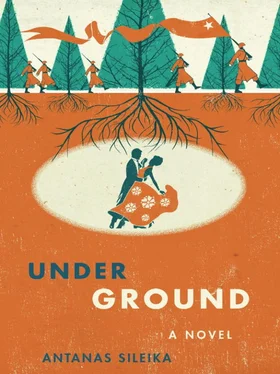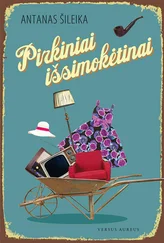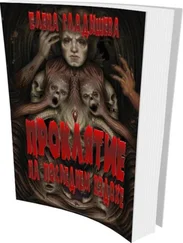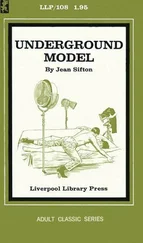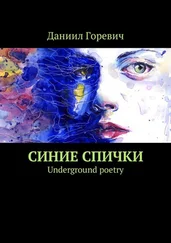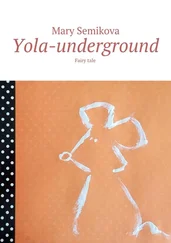“Lukas, how could you do it?”
“I put him out of his misery.”
Lukas said the familiar words to calm his brother, but they did not reflect his own feeling, the strangeness of having committed an irreversible act. Before that moment he had been a student hiding out in the woods. Now he was something else, but the sensation was so new that he didn’t yet know the creature he’d become.
Neither Lakstingala nor Ungurys was entirely happy about the way the morning had played out, but as the slayer was dead, there was no point in making Vincentas shoot him again. But Ungurys was still irritated, and he made Vincentas come up last behind them and reprimanded him twice for being sloppy in masking their footprints with the pine branch he was forced to carry.
MARCH 1945
THE TRAVELLING SHOEMAKER from Merkine warily approached the wooden footbridge on his way out of town.
He watched for movement on the country road on the far side of the river, high now with chunks of ice and spring runoff. He had heard gunfire upstream and did not want to run into a firefight or a group of drunken soldiers trying out their new weapons.
Gunfire in the countryside was as common as the cries of ravens. Rifles, hand grenades, pistols and bombs littered the forests and fields; one could find them in blueberry bushes, under stones or at the bottoms of rivers among the crayfish. The previous year, children had gone looking for them after the wild strawberry and mushroom seasons, when the ferns began to curl in the frost and revealed the scattered arms below their withered fronds. The children amused themselves by firing these weapons, sometimes shooting one another or blowing themselves up when trying to fish with grenades.
The lost and discarded firearms had lain hidden by the snow over the winter but were reappearing with the irregular melts of early spring, only to be hidden again at the next snowfall. The harvest of firearms was so common that no one remarked on the occasional gunshot or explosion in the forest or fields.
A red rocket arcing across the sky, on the other hand, festive as Stalin’s birthday fireworks, was a signal to Cheka troops that a major concentration of partisans had been found and help was needed. Sustained bursts punctuated by single shots from various types of arms, as well as explosions of grenades or tank rounds, meant that a fight was going on. The partisans fought pitched battles across the country that winter and spring, taking on troops by the hundreds. The Reds ruled the cities and towns, but much of the countryside and some of the villages went back and forth between the hands of the partisans and the Reds.
The gunfire the shoemaker had heard was prolonged. It was a battle, but not a large one. He listened carefully before risking the narrow bridge where he would be exposed as he crossed six or seven metres in full spring flood, but he heard nothing more and stepped onto the boards. He stopped midway to look at the swollen stream, filled with clumps of ice and clods of earth. Something white was floating on the water, bumping against the far bank. The shoemaker hurried to the far side, found a stick and pulled the item to shore.
It was a prayer book, opened in the middle. He read the pages there, in particular the prayer for the dead: Raise your eyes to the heavens and pray for me, for though my body has been consigned to the underground, we will rise again together in a better life.
The book had not been in the water very long; the middle pages were not yet thoroughly soaked. Flint would want to see this. The shoemaker made his way onto the forest road and began to take various paths. He stopped from time to time to listen for the snapping of branches that would signal he was being followed, but heard none.
His home base was Merkine, but he did not spend much time there. The ancient town had once been a city, swept over by so many armies that military buttons from various centuries lay in strata in the fields nearby. The hill town at the confluence of the Merkys and Nemunas Rivers had an ancient church with a steeple, a wooden Russian Orthodox church from the time of the czar and even a stately red-brick high school, two storeys high. It had once been a Jewish school, but since their murder no more Jews were left to fill it. The town was now a patchwork of a few old brick or stucco houses and many wooden ones.
The itinerant shoemaker had worked out of Merkine for over thirty years, walking to the farms within a radius of fifteen kilometres of his home, leaving the town trade to his lifelong competitor, a richer but older and stouter man who did not like to walk. With any luck the older town cobbler would die soon and the shoemaker could take over his trade. The travelling shoemaker was getting too old for so much walking, and it had become dangerous since the war started.
Someone had denounced him as a spy, and Flint had ambushed him on the road and taken him deep into the forest for interrogation. The partisans were ferocious with spies, who sometimes lay in ditches to watch the comings and goings of partisans and then sold the information to the Cheka. The shoemaker protested his innocence and even offered to fix the partisans’ shoes to prove his good intentions. Luckily for the shoemaker, he had a straightforward manner, and some of the partisans had been in the forest for a year with the same boots.
The shoemaker had intended to stay in Flint’s camp for a week at most, but he had so much work that he remained into December. He would have been working even longer if it hadn’t been for the coming snows, which made the partisans stay close to their winter bunkers. The Cheka loved the snow, and awaited it with all the joy of a hunter anticipating the opening of his season.
It would have been better if the partisans had had wings to take them through the trackless sky. In that case they might have flown up to see that they were deep, deep in the Red-controlled zone, and there seemed to be no massing of American and West European troops coming to free them.
This lack of troops would have been perplexing. The French and English had gone to war over Poland, so why did the Westerners let their young men die if not to save that country? Surely the next to be liberated after Poland should be Estonia, Latvia and Lithuania, which thought of themselves as part of the European family.
No one else did. The English had decided to give the three Baltic countries to the Soviets if they ever asked, but the Reds never bothered. They believed they didn’t need to. Had the partisans been birds, one of them might have perched on a branch in Yalta, where Roosevelt told Stalin he could keep the Baltics as long as he was discreet. As for Ukraine, where the partisan movement was much bigger and fiercer, Roosevelt did not even think it was worth mentioning.
And if the partisans could have looked into the future as well as into the distance, they would have seen a fog descending over Eastern Europe, a haze of ignorance in which much of what the Reds said was believed in the West. Anyone who had run away from the place, the Reds claimed, must have been a Nazi, and anyone who stayed behind to fight must have been one too. As the old archives were locked up, no respectable historian would write about the place because no respectable historian would work from secondary sources. As for what the partisans and émigrés wrote or said, their words could not be taken seriously. They were at best just pawns in a game they could not see properly, and at worst an entire race of criminals who hid out in the forests because they had nowhere to flee with their crimes.
But the partisans, of whom Lukas was now a member, were confined to the time they lived in, to the earth they walked upon, often living beneath it in bunkers, where the papered walls grew mould in the corners, the ceilings leaked drops in every thaw, and the air was thin during the day because it was dangerous to put in too many air vents, which gave off steam in the cold. The bunker was a home and a trap, safe if secret, but deadly if found out.
Читать дальше
